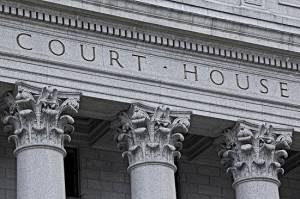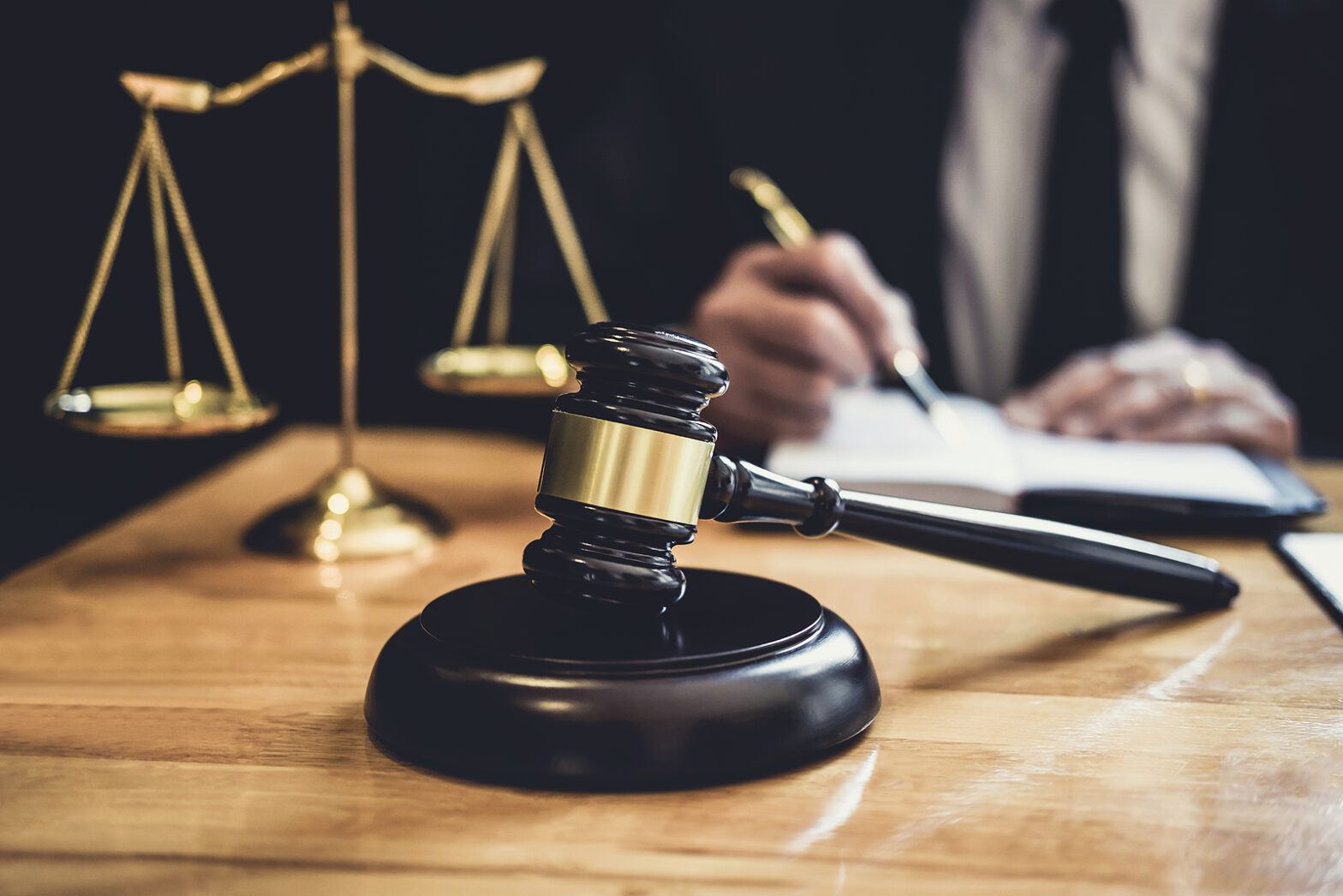What is the Difference Between a Motion for a New Trial and an Appeal?
A defendant facing criminal charges in California is entitled to a fair trial by a jury of his or her peers with effective legal representation. Sometimes, mistakes are made during criminal proceedings that can lead to wrong decisions being reached.

Fortunately, California law provides a defendant with legal remedies to correct his or her potentially improper conviction or sentence.
A motion for a new trial may allow you to have your case heard again by a different jury. An appeal is your right to a reexamination of the original record of your case by the Court of Appeals. The California Supreme Court also reviews cases on appeal if the review is granted.
Our attorneys at Wallin & Klarich want to briefly explain the differences between a motion for a new trial and an appeal. You need to know that a conviction is not necessarily the final disposition if you are found guilty in a criminal case.
What is a Motion for a New Trial?
California Penal Code Section 1179 defines a new trial as “a reexamination of the issue in the same Court, before another jury, after a verdict has been given.” A motion for a new trial is just that: a second chance for a new jury to hear and decide your case.
Pursuant to Penal Code Section 1181, a new trial can be granted under the following conditions:
- If the trial was conducted outside your absence, except when authorized by law;
- When the jury has received any evidence out of court other than that resulting from a view of the premises or of personal property;
- Jury misconduct;
- Error of the court;
- Prosecutorial misconduct or prejudice;
- Lack of evidence;
- Discovery of new material evidence;
- As a result of lack, loss or destruction of the trial record or transcript; and
- Ineffective assistance of counsel (IAC).
If any of the above can be sufficiently established, your California criminal defense attorney may be able to file a motion – a formal request with the court – to have a new jury hear your case. Upon a successfully argued “motion for new trial,” a judge may grant your request and the criminal proceedings against you are recommenced as if the first trial never took place.
Testimony and evidence, both for and against you, must be reintroduced at the new trial. Additionally, the law prohibits any reference to the verdict or finding reached at your original trial.
When Can You Ask for a New Trial?
To properly consider a motion for a new trial, the court must receive and hear your request prior to:
- Sentencing, after judgement has been entered against you;
- A judge’s granting of probation; or
- Your commitment as a mentally disordered sex offender, a narcotics addict or as an insane person.
Court Options upon Hearing a Motion for a New Trial
After a trial court hears your attorney’s motion for a new trial, the judge has the following options:
- Grant the motion and order a new trial;
- Deny the motion and pronounce judgment against you; or
- Modify the verdict to a lesser included offense of the convicted charge, or reduce the degree of the offense if you were charged with a “wobbler” – a crime that may be charged as either a felony or a misdemeanor.
What is an Appeal?

An appeal is your opportunity to have an appellate (higher) court review the original record of your case for procedural mistakes. An appeal is not a new trial. You are not allowed to present new evidence and you do not have a right to a new jury. Additionally, you must have a valid reason in order to request an appeal.
Grounds for appeal are limited to the following:
- Prejudicial Error: This kind of error is a mistake about the law or court procedures that causes you substantial harm. “Prejudicial error” can include things such as:
- Mistakes made by the judge about the law;
- Incorrect instructions given to the jury;
- Errors or misconduct by either the prosecutor or by the jury;
- No Substantial Evidence: you may request that the appellate court determine if there was not enough evidence that reasonably supported the trial court’s decision; and
- Ineffective Assistance of Counsel (IAC): Error or misconduct by your criminal defense attorney which adversely affected your right to competent legal counsel.
When Can You Appeal?
You must make a timely application by serving a “Notice of Appeal” of the judgment against you as follows:
- 30 days for a misdemeanor or infraction; or
- 60 days for a felony.
This rule applies whether you were convicted by way of a jury verdict or you pled guilty upon offer of a plea bargain.
Keep in mind, appealing a guilty plea is generally more difficult to do and may be subject to whether you voluntarily waived certain rights. When possible, appealing a guilty plea also comes with potential risks, including the opportunity for a prosecutor to reintroduce charges against you that he or she dismissed in order to secure your plea agreement.
Additionally, appellate courts typically only review legal claims that your criminal defense attorney raises at trial. If you neglect to make legal claims at trial, you usually waive those claims. For example, if a prosecutor introduces evidence that you believe was unlawfully obtained, the court will consider the point only if your defense lawyer objected to the evidence during the trial.
What Can the Appellate Court Decide?
An appeal is limited to the trial court record. The Court of Appeal has no authority to decide questions of fact. It doesn’t decide guilt or innocence. It may only decide whether a trial court properly followed the law. Some of the questions the appellate court may consider include, but are not limited to:
- Was certain evidence correctly admitted or omitted?
- Was the jury properly instructed?
- Did the judge abuse his or her discretion?
- Did you receive competent advice and effective representation from your attorney?
- Were any sentencing errors committed?
Even if the Court of Appeal finds that a trial court committed a legal error in your case, the error must have been “prejudicial” – which means the error was substantial or “harmful” enough that the possibility exists a trier of fact (a judge or jury) would have reached a different outcome if not for the error.
Possible Results of an Appeal

If the Court of Appeal finds that the proceedings were conducted correctly, the trial court’s judgment is “affirmed,” which means that your conviction and sentence will not change.
If the Court of Appeals decides that error occurred and that error was prejudicial, your judgment will be “reversed” (in part or in full) and often “remanded” (sent back) to the trial court for a new trial, a new sentencing hearing, or some other proceeding to correct the error.
Upon losing an appeal, either you or your opponent (the People of California, known as the “respondent”) may seek petition for review in the California Supreme Court. However, there is no right to review unless your conviction is for a capital case (life without parole or death sentences), in which case review is automatic.
Contact Wallin & Klarich Today
If you or someone you care about has been convicted of a California crime and believe errors were made during the case, you should speak with one of our experienced criminal defense attorneys at Wallin & Klarich today. A conviction isn’t necessarily the final disposition in a criminal matter. Options may still be available to you to challenge the adverse outcome.
Our attorneys at Wallin & Klarich have over 40 years of experience successfully defending the rights of our clients who either deserve a new trial prior to pronouncement of judgment, or are entitled to appeal their conviction and sentence.
With offices in Los Angeles, Sherman Oaks, Torrance, Tustin, San Diego, Riverside, San Bernardino, Ventura, West Covina and Victorville, our skilled and knowledgeable criminal defense attorneys at Wallin & Klarich can examine the record of your case to determine what legal errors were made at your trial and advise you on the best course of action to seek legal remedy. Our priority is to make certain you receive a fair and just result in your case.
Call us today at (877) 4-NO-JAIL or (877) 466-5245 for a free telephone consultation. We will get through this together.

